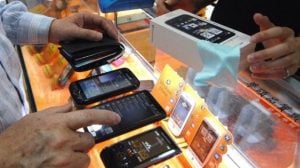Coins.ph is providing the payment gateway for local consumer finance company Home Credit. Home Credit provides non-cash loans through in-store financing, mainly for purchases such as electronics and computers, musical instruments, home appliances or satellite TV subscriptions.
Loan payments are just the latest addition to an impressive list of daily bills Philippines residents can pay using bitcoin, via their Coins.ph wallets.
 The drop-down list on the wallet’s “Pay Bills” section lists over 70 bill payment options, including electric and water utilities, telecommunications and cable TV, insurance and broadband internet.
The drop-down list on the wallet’s “Pay Bills” section lists over 70 bill payment options, including electric and water utilities, telecommunications and cable TV, insurance and broadband internet.
There are also options for national social security contributions, tuition fees at some schools, and credit card payments at almost 20 banks.
Users can also use the wallets to top up pre-paid mobile phone accounts and purchase game tokens like Steam Wallet credits, Money Online (MOL) Points and Garena Shells.
Coins.ph wallets are accessible via web browsers or mobile apps for Android and iOS.
Overseas Sending Options
Coins.ph also functions as a regular bitcoin exchange, and international remittance service with its “Cash Out” feature. Amounts in Philippines pesos can be collected by the receiver in at least ten different ways. These include bank deposits, cardless ATM withdrawals, cash pickups and cash cards, and even door-to-door delivery.
Of course, expat Filipinos sending money from abroad can also use their bitcoins to pay any of the bills listed above, instead of remitting money directly.
Bitcoin at Home in the Philippines
 The Philippines offers a huge potential market for bitcoin. It has a foreign diaspora of over 10 million which includes both temporary and permanent expat workers, and other foreign-born citizens of Filipino descent.
The Philippines offers a huge potential market for bitcoin. It has a foreign diaspora of over 10 million which includes both temporary and permanent expat workers, and other foreign-born citizens of Filipino descent.
The country also has a large population of unbanked or under-banked people, meaning simple bank transfers are often not an option for remittances.
Its economy grew by 6.9% in Q1 2016, as household spending and investment also increased.
Overseas Filipinos also sent $6.56 billion in cash remittances home in the same period. There has also been a sharp increase in smartphone shipments to the country, surpassing most others in the region.
Other services including Satoshi Citadel Industries’ Rebit.ph are trying to capture a share of the remittance market with services aimed directly at overseas transfers.

